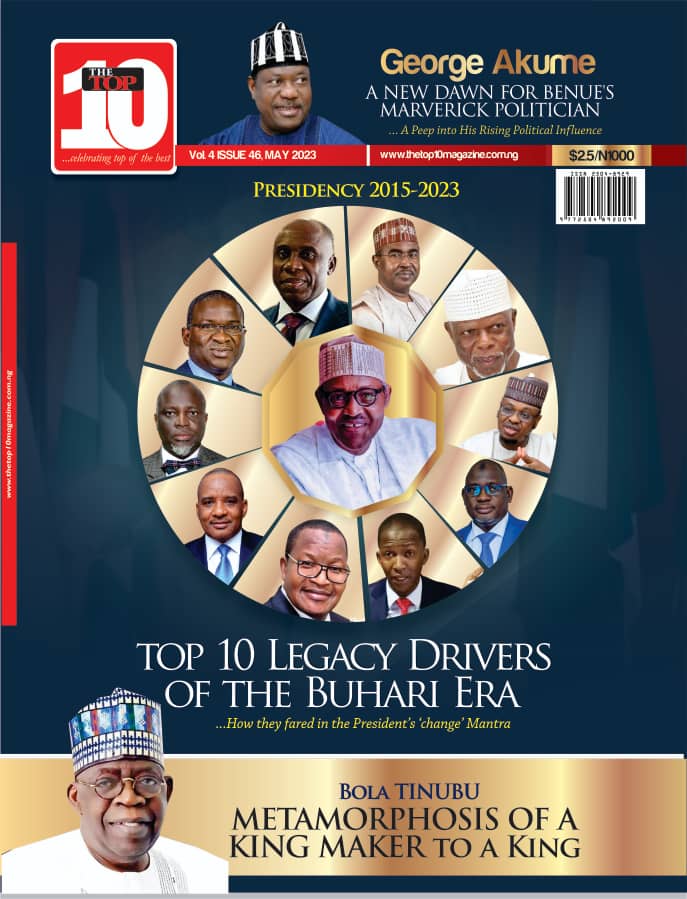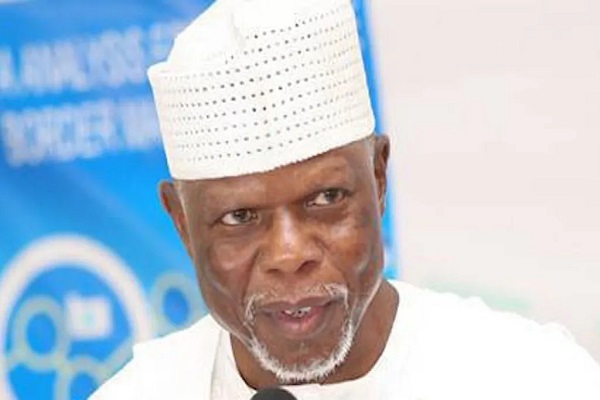Col. Hameed Ali (Rtd.), Comptroller-General, Nigeria Customs Service (NCS), is one of the most
trusted legacy drivers of the Buhari’s government. The criminologist is on the side of anti-
corruption crusaders of the administration given charge of an agency traditionally known to be
a drain pipe of government revenue.

From one administration to the other through the years, NCS has worn a symbol of corruption
and inefficiency but Buhari took the most impactful steps to change the label. It was for him
imperative that a new and undefiled spirit got on the saddle in the leadership of the service.
The President was keen to ensure that he has in such a sensitive position someone he can trust.
Curiously finding no career customs official suitable for the much needed reform, the President
found in Ali a man of vaunted integrity quite fitted to carry out a swift surgical operation at

Customs.
His trust and confidence on the retired colonel are rooted on tested character and established
integrity. Ali was the President’s campaign funds manager and later on his chief of staff.
Ali built an outstanding reputation of trust and during the military era when he held a number
of critical positions and retired from the service without any character stain or spot of
corruption. Since then he has maintained a lifestyle of contentment with what he has.
His mandate at the Customs was to close up channels of revenue leakages and empower
government with the fiscal space needed for stimulatory intervention in the economy.
By a wide agreement, Ali is well fitted for the job, being widely reputed as a Spartan anti-
corruption crusader. He understood his mission at the Customs quite clearly, which is to take
the President’s anti-corruption crusade to the Nigerian Customs Service and to report victory.
In his own words, his mandate is “go to Customs, reform Customs, restructure Customs and
increase the revenue generation, simple”.
The coming of Ali has witnessed the beaming of the most probing searchlight ever on the
Nigeria Customs Service. Soon after his appointment, he embarked upon a number of
restructuring measures aimed at enlarging the revenue generating capacity of the agency and
strengthening the operating framework of the service itself. When he arrived at his duty post,
he quickly showed the officers of NCS the two sides of his operational coin.
On the one side was a hand of cooperation, which he extended to the Customs management to
work with him to deliver on a mandate totally different from what they used to know. He left
no doubt that he was on a worthy mission to provide effective leadership to the organisation.
The other side of the coin was a bombshell: corrupt customs officers will be dismissed,
prosecuted and sent to jail under the new regime of zero tolerance for corruption. It was a
strategy of administrative divide to preserve and strengthen the good workforce in the agency
and show the bad the exit door.
Ali carried out restructuring operations at the Customs involving an overhaul of the
management team. In the process, some members of the team were retired and new members
were appointed into the team. This was followed by a major redeployment exercise, which was
aimed at strengthening operations at all critical quarters of the service.
The new Customs boss introduced stringent operational procedures, which require the filing of
weekly reports to his office on all proven cases of false declarations, deliberate misapplication
of tariff, undervaluation, concealment and seizures with full compliments of action taken.
In order to achieve smooth and efficient operations in across the board, he dentralised
functional authority, giving increased operational powers to customs area controllers, heads of
units and departments. He matched the enhanced authority with increased responsibility,
making the heads accountable for infractions in their areas of operations.
Ali is clearly in the forefront of the legacy drivers of the Buhari era, having delivered
satisfactorily on his mandate. He has provided a significantly enhanced leadership quality at the
Nigeria Customs Service.
The outcome is a changed operating environment for enhanced revenue generation, having
injected in the organisation a new spirit of loyalty and dedication to the course of nation
building. NCS stands as a living testimony that the government’s change agenda did happen at
least in some quarters.
An important part of the reform involves staff welfare improvements, which was to ensure that
staff and officers of the department do not need to be corrupt in order to live well. Ali has used
adequate motivation of the workforce as a tool to preserve good staff and as the key for
optimising service delivery and revenue generation.
He also took steps to address a number of anomalies in staff matters affecting recruitment,
training, posting and promotion of officers. He also enhanced human resource capacity through
training and re-training of officers and men of the service for effective application of the
Customs and Excise Management Act.
Ali has taken NCS through a fire of reform and produced a transformed agency with corruption
minimised and revenue delivery enhanced. Through the economic declines and slow growth
seen over the eight years of the Buhari’s administration, the Customs Service has continued to
attain new peaks in revenue generation numbers.
The positive narration of the Customs presents a major counter cyclical force that has helped
the government to stem the force of economic decline and propel the recovery functions of the
economy.






